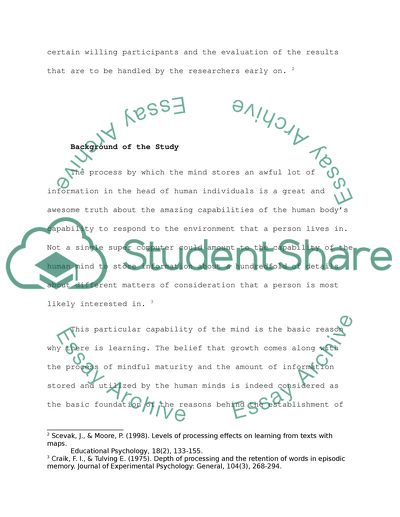Cite this document
(“Encoding Study Essay Example | Topics and Well Written Essays - 2500 words”, n.d.)
Retrieved from https://studentshare.org/miscellaneous/1555780-encoding-study
Retrieved from https://studentshare.org/miscellaneous/1555780-encoding-study
(Encoding Study Essay Example | Topics and Well Written Essays - 2500 Words)
https://studentshare.org/miscellaneous/1555780-encoding-study.
https://studentshare.org/miscellaneous/1555780-encoding-study.
“Encoding Study Essay Example | Topics and Well Written Essays - 2500 Words”, n.d. https://studentshare.org/miscellaneous/1555780-encoding-study.


